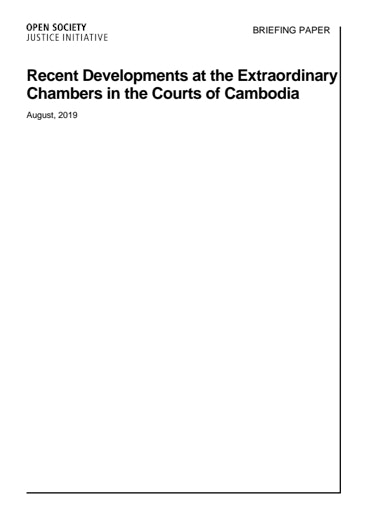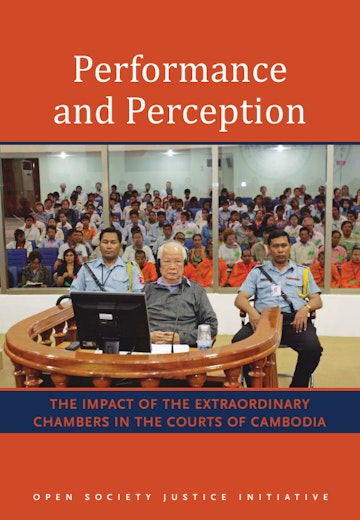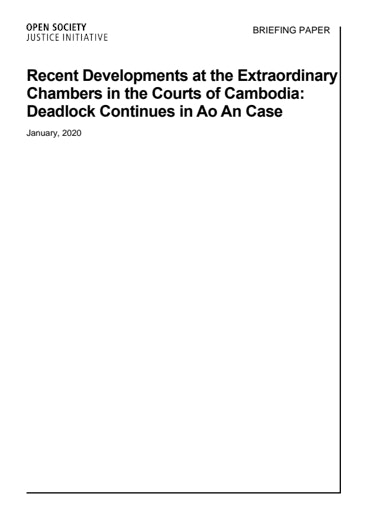Recent Developments at the Extraordinary Chambers of the Courts of Cambodia: January, 2020
On December 19, 2019, the Pre-Trial Chamber of the Extraordinary Chambers in the Courts of Cambodia issued a complex, 266-page ruling that failed to resolve the question of whether Case 004/02, with charges of genocide and crimes against humanity against Ao An, will proceed to trial.
The court failed to reach a binding decision on the core issue, which required a super-majority vote of four of the five judges.
The Chamber's three Cambodian judges insist that the case be dismissed, and the two international judges maintain that the case be transferred immediately for trial on the charges in the indictment. It remains unclear if or how this case, or two similar ones against former Khmer Rouge leaders Meas Muth and Yim Tith, will now proceed.
This update summarizes the main points in the Pre-Trial Chamber ruling, the latest step in a stand-off in which Cambodian judges on the tribunal have aligned themselves with the government's view that second-tier Khmer Rouge leaders should not be subject to the jurisdiction of the UN-backed tribunal.
The ECCC was established in 2004 by a joint agreement between the United Nations and the government of Cambodia, and uses a mix of international and local judges and staff. It began proceedings in 2007.
The Open Society Justice Initiative has been monitoring the work of the tribunal since 2007, as part of its work to ensure accountability for war crimes, crimes against humanity and genocide.
Recent Developments at the Extraordinary Chambers in the Courts of Cambodia: August 2019
This report summarizes recent developments at Cambodia's Khmer Rouge tribunal, including the death of Nuon Chea, the publication of the second judgment against him and Khieu Samphan, and further division between the ECCC's Cambodian and international investigating judges, this time in the case against Yim Tith.

Performance and Perception: The Impact of the Extraordinary Chambers in the Court of Cambodia
The Khmer Rouge tribunal in Cambodia is conducting the most ambitious prosecution for mass atrocity crimes since 1949. This report examines its achievements and its shortcomings.

